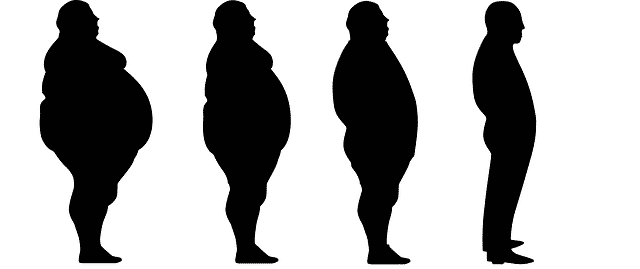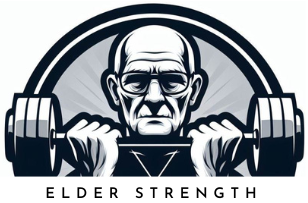Ketogenic diets have been a growing trend for over a decade. Today we will talk about the safety and effects of a keto diet for seniors.
You’ve seen it in magazines, in commercials, even in the newspaper and news. You probably know someone who has tried it and praised it. Ketogenic diets have taken over the health and fitness world with force in the past decade with the low carb boom.
While many articles focus only on the positive effects of ketogenic diet like improved fat loss, better satiety, improved cognition, etc. that’s only part of the truth.
The truth is that a keto diet can be an effective tool in some situations, but it’s not a magic cure for all diseases. In all honesty, it seems there is a whole cult mentality built over the ketogenic diet where people don’t want to acknowledge the negative effects. And there are some real negative effects to keto well talk more about in a minute.
The truth is that for most people keto is not a long term solution. It’s simply too extreme and not something most of us are adapted to on a genetic level.
The proponents claim that our ancestors ate primarily ketogenic diets and that there are still people living like this in the modern world who are completely healthy. The Inuits being a prime example. And carbs are the source of all modern
They are completely disregarding the fact that most of our ancestry has access to fruits, vegetables, and other carb sources and that our biochemistry is very well adapted to handle carbs as an energy source. So much so that it prefers them over anything else.[1]
Not to mention the fact that if every single human on the planet ate a ketogenic diet, we would simply run out of food. Producing fat and protein is much more resource-demanding than producing carbs.
That said, there are situations where a ketogenic diet can have a remarkable positive effect on your health and metabolism. But if you are new to ketogenic diets, I think we should start by looking at what exactly ketogenic diet and ketosis mean so you can better understand the mechanisms of how it affects your body.
I have run several ketogenic diet periods in my life and read extensively about the subject so I have a reasonably good idea of how it works on the human body. I will reference scientific research where needed, so you can check out the claims yourself and not take my word for it.
I also want to emphasize that there is a great individual variation in how your body reacts to ketosis. Everything from your genes, body mass, fat mass to your activity levels affect how you react to ketosis so you are the only one who can decide if to try it.
I will also share my recommendation for a ketogenic diet plan because you can’t just go keto without really planning your diet. You need to know what you can eat and what you can’t eat and in what amounts.
What Is a Ketogenic Diet
The ketogenic diet is essentially a super low carb diet where most of your energy is derived from dietary fats. Protein is consumed in only moderate amounts and carbohydrates are avoided altogether. Fat is used abundantly.
The aim of a ketogenic diet is to reach a state of ketosis. Ketosis is a metabolic state where your body starts to produce ketone bodies from fat in the absence of carbs.
Your cells can use these ketones as an alternative energy source to glucose. It’s also important to restrict the amount of protein you eat because redundant protein will be converted into glucose through gluconeogenesis.
So a typical macronutrient distribution for a ketogenic diet might look like this:
- 0 – 5% Carbs
- 70% of Fats
- 25 – 30% Protein
A reasonable and healthy keto diet will include vegetables that will always contain trace amounts of carbs even if you pick the ones with least of them. That’s why it almost impossible to reach a 0 carb state but that is not even necessary.
This is because ketosis happens gradually and you can maintain ketosis on a low carb diet, especially if you have done an induction period with minimal carbs. It’s really not an on/off switch like many people make it out to be.
It’s actually a survival mechanism that has allowed humans to survive through long winters on only meat and fish and the bare minimum of plant-based food to avoid scurvy (vitamin C).
So why do people actually want to live on this famine based diet? Well, ketosis actually has some potentially remarkable positive health effects.
Benefits of Ketosis
Before we go on it’s important you understand we live in a culture of abundance. Never in the history of mankind has there been a time where food and especially high caloric density food has been so available.
Our culture has become so estranged with hunger and famine that we actually embrace such ideas that you have to eat every couple of hours to keep your blood sugar elevated to stave off hunger.
Our lives revolve around social meetings based on food, beverages, and alcohol. We are bombarded with ads of delicious, calorie-dense foods all the time.
It’s no wonder that most of the western world are either overweight or obese. And with this comes all the common metabolic diseases like type two diabetes and atherosclerosis.
In many cases (not all) they are the consequence of long term insulin resistance and the following glucose intolerance. If you are constantly in a caloric surplus, eat plenty of carbs and don’t exercise enough, this state is inevitable.
Now if you take carbs out of the equation, it’s actually possible to start losing weight, reduce your blood sugar levels to a healthy range and improve your health.

This is what has caused some people to demonize carbs. They just don’t understand that carbs are not the bad guy here, the caloric surplus and lack of exercise are. Your body can handle carbs just fine when it’s healthy. But if you are suffering from significant insulin resistance, you are essentially in a diseased state.[2]
This is where the first benefit of ketosis comes in. Because ketosis relies on ketone bodies instead of glucose to provide energy to your cells, it doesn’t need insulin to work. The main function of insulin is to transport glucose to the cells of your body.
Insulin resistance simply means your muscle cells have become resistant or immune to insulin. They are thus starving and glucose is left running in your bloodstream where it causes all sorts of havoc.
When you reach ketosis in a state like this, your cells actually get more energy and since there is no more glucose flowing in from your diet, your blood sugar levels will stabilize.[3]
Because the amounts of insulin and glucose in your bloodstream will reduce significantly, your cells can start becoming more sensitive to insulin again. This means that you can actually reset the metabolic damage eating too much for years has caused.
The other benefit of ketosis is increased fat metabolism, which in some cases can lead to significant improvement in fat loss efforts. This is because your body adapts to using fat as it’s main energy source, the metabolic state also promotes using your own body fat for energy, IF you are in a caloric deficit.
You will not lose any body fat with ketosis if you are not in a caloric deficit. That said, ketosis is also very beneficial for reducing your caloric intake because fat and protein are superior for satiety compared to carbs. Especially fat makes you simply feel full.[4]
So if you are overweight and already have significant insulin resistance and you combine a ketogenic diet with a caloric deficit and a reasonable exercise plan, you can see some remarkable benefits.
Many people also report an improved cognition on a ketogenic diet. One suggested the mechanism is that as we age our brain cells’ ability to metabolize glucose declines. Ketones as an alternative would thus improve brain cell function.
Now let’s talk about the safety and the negative sides of keto diets.
Is Keto Safe and healthy for Seniors?
So in theory ketosis seems absolutely great. Improved metabolism, improved fat loss and improved cognition. What’s not to like!
One of the obvious negative effects of the ketogenic diet is that it’s very restrictive. Living on diets that restrict complete macronutrient groups is associated with and encourages obsessive behavior and anxiety over food. It will restrict you in social situations and will either make you hate the diet or yourself. This is not a good base for a healthy attitude towards food.[5]
If you start following a ketogenic diet, you will first go through an induction period which can include something called a “keto flu”. You essentially feel sick with flu-like symptoms because your body isn’t adapted to using ketones as an energy source. While this is typically just a nuisance, it can be potentially dangerous, especially for seniors. It can potentially trigger underlying health issues and lead to dangerously low blood sugar levels.
Because you have to restrict a lot of your vegetable sources on a ketogenic diet, you run a much higher risk of getting mineral and vitamin deficiencies. Vegetables and fruits contain other compounds that are very beneficial for health like fiber and antioxidants. You will likely get less of these on a keto diet than on a healthy mixed diet.
How about the effects of fat, especially on saturated fat on your heart health on a ketogenic diet? Many proponents claim that saturated fat is safe and you can eat it abundantly on a ketogenic diet. Unfortunately, the science doesn’t universally support this claim as shown by the European Society of Cardiology study [6]
So if you are considering a ketogenic diet it can be great for improving your glucose and fat metabolism in the short term but there are likely long-term risks and possible short-term complications.
This is why I recommend you consult your doctor before considering a ketogenic diet. It’s important to rule out any possible contraindications, effects on medication, etc. If you do decide to start, don’t dive in headfirst. Reduce carbs slowly and take your time to let your body adapt and follow a proven plan. I’ll show you one next!
Keto Diet Plan for Seniors
So if you are convinced by the positive effects of keto diets and want to start a ketogenic diet, my recommendation is to get a proven diet plan or a program to achieve the best results safely.
With ketosis comes certain considerations you don’t ever have to deal with a typical diet. Ketosis affects your hydration and salt balance significantly so you need to know how much to drink and how much to eat salt for example.
Macronutrients are also extremely important for a keto diet because if you eat the wrong kinds of food, you will not only achieve ketosis but you will feel like crap.
It’s also important to know how to transition safely through the induction period and how to reduce the effects of the “keto flu”. They can be severe enough for you to give up or even get complications so this is not something to take lightly.
This is why I recommend following a proven plan that takes into consideration all these variables. My recommendation is the Personalized Keto Plan Builder created by Dr. Helen Okoye, Dr. Chai Lee and Luisa Schetinger at simpleketotest.com.
That is an affiliate link by the way. It means that if you click the link and do decide to buy, I will earn a small commission that I use to run this site. I want to be completely transparent about this.
The product isn’t created by me but I do think it’s one of the best keto diet plans available online right now. The creators are actual medical professionals and the plan is personalized according to your age, sex, weight and activity levels. Just like it should be.
The program helps you build a personalized keto diet and it includes recipes and all the information for getting started. Definitely a better option than trying to scrape up the information for free from the internet in my opinion.
Conclusion
I hope you enjoyed reading this article about the keto diet for seniors and found the information useful. If you have any questions, leave them in the comments section below and I’ll get back to you as always.
Ketogenic diets definitely have their benefits but they are not the cure to all diseases some people make them be. This is why it’s very important to asses your own situation with your doctor and learn enough about the risks and benefits of keto before starting.
Finally, we are all individuals with different reactions to different diets. This is why you are the only one who can find out if keto diets are suitable for you. You might love how you feel in ketosis and actually love the low carb foods and only see positive reactions.
Or you might have constant cravings for carbs, feel sluggish and cold and simply miserable because you have to restrict things you love. It really up to personal preference and individual reactions.
If you found this post useful, please bookmark my site, subscribe to my newsletter and share it on social media!
See you next time!
Sources:
- Carbohydrates as a source of energy. Institute of Physiology, University of Lausanne, Switzerland.
-
The pathogenesis of insulin resistance: integrating signaling pathways and substrate flux. Varman T. Samuel and Gerald I. Shulman
-
A low-carbohydrate, ketogenic diet to treat type 2 diabetes. William S Yancy, Jr, Marjorie Foy, Allison M Chalecki, Mary C Vernon, and Eric C Westman.
-
Ketogenic diet for weight loss. Rhonda Ting, Nicolas Dugré, G. Michael Allan, Adrienne J. Lindblad
-
Orthorexia Nervosa: An Obsession With Healthy Eating. Jonathan R. Scarff
- Low carbohydrate diets are unsafe and should be avoided. European Society of Cardiology


I learnt some more about the Keto Diet. Thanks. I’ve been arched and read a lot and have been doing Keto on and off for a while now. Keto for cutting with my weight training.
Thanks for the comment. Glad you liked it!
Hi, I am 72 years old and type 2 diabetic. My endocrinologist says I don’t want to be in Ketosis. I would think this would be a good way to go for me. What do you say?
I can’t give you medical advice Dyanne, so trust your doctor. Ketosis induced by a ketogenic diet and ketoacidosis due to diabetes aren’t exactly the same thing but you need to trust your endocrinologist. They have over a decade worth of actual scientific medical training after all.